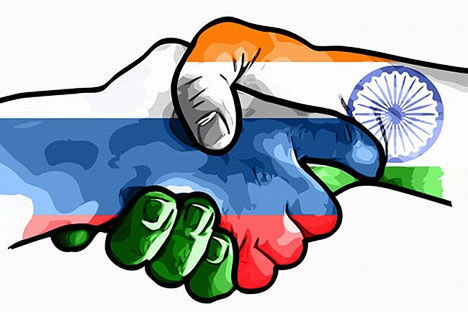As in 2014, New Delhi’s close relations with both Moscow and Washington put it in a delicate diplomatic bind.

Welcome to Foreign Policy’s South Asia Brief.
The highlights this week: The Ukraine crisis puts India in a diplomatic bind, Norway hosts a conference with Taliban officials, and South Asia fares poorly in new global corruption rankings.
If you would like to receive South Asia Brief in your inbox every Thursday, please sign up here.
What the Ukraine Crisis Means for India
As most of the world watches for a possible Russian invasion of Ukraine, India has maintained a cautious silence. The crisis puts New Delhi in a difficult diplomatic position.
India doesn’t want to upset its long-standing relations with Russia by trying to rein it in, but an invasion of Ukraine would also spell disaster for its strategic interests. The crisis puts New Delhi under pressure from Washington to join the coalition of countries opposing Moscow’s military mobilization. The more things escalate, the more challenges India will face as it tries to balance relations with both countries.
India’s friendship with Russia harks back to the early years of the Cold War. Officials in New Delhi consider Moscow a time-tested and reliable partner. During India’s devastating COVID-19 surge last year, many Indian observers noted that it was Russia—not the United States—that immediately came to India’s aid. Tellingly, India was silent when Russia invaded Ukraine and annexed Crimea in 2014, and it abstained from a United Nations resolution upholding Ukraine’s territorial integrity.
This time around, New Delhi will also be hard-pressed to push back against Moscow—and not just out of nostalgia. Russia is a top arms supplier to India, which risked U.S. sanctions by purchasing a Russian S-400 missile defense system that began arriving last month. To New Delhi, Moscow also makes a major contribution to a multipolar world order with power dispersed beyond Washington and Beijing. This, too, makes India more likely to stay quiet about Russia’s actions in Ukraine and elsewhere.
Like many countries, India won’t call out the excesses of other governments if doing so could damage its interests. Its reaction to last year’s coup in Myanmar was muted, seeking to avoid jeopardizing relations with a military regime that cooperates with India on border security and infrastructure projects. New Delhi recently introduced a new plan for engagement with the junta, which it doesn’t want getting any closer to Beijing.
Yet another Russian invasion of Ukraine would deliver major blows to Indian interests, as Tanvi Madan and Pranab Dhal Samanta have each argued in recent essays. The resulting Western sanctions would make Moscow more reliant on economic assistance from Beijing—ultimately undermining the multipolarity sought by New Delhi. Fresh sanctions would also present obstacles for India’s defense trade with Russia.
Furthermore, the crisis in Ukraine could distract the United States from its focus on countering Chinese power. Meanwhile, Beijing could capitalize by intensifying provocations in the South China Sea or even along the India-China border—outcomes that would deliver fresh blows to New Delhi’s interests. These possibilities highlight how the Russia factor could constrain U.S.-India relations.
The United States is aware of India’s concerns about impending military action. Since the last time Russia invaded Ukraine, both Moscow and New Delhi have each scaled up relations with the other’s rivals: Russia with Pakistan and China and India with the United States. The United States may see a strong statement of concern from India—as a close friend of Russia and a key non-NATO actor—as a powerful message.
Such a move could help India’s cause as it seeks a U.S. sanctions waiver for the S-400 purchase—matters that were likely discussed during a Jan. 20 call between Indian Foreign Secretary Harsh Vardhan Shringla and U.S. Deputy Secretary of State Wendy Sherman. Predictably, a U.S. readout said Russia was an agenda point, while India’s readout didn’t mention Russia.
A full-scale, extended war is the worst-case scenario for India: It would make its role as a silent bystander untenable. But even a more limited Russian military intervention would likely result in a sanctioned Moscow, a strengthened Beijing, and a distracted Washington—all costly for New Delhi’s interests. India could move the needle by urging Russia to use restraint, but it may deem even that modest move too risky.
Michael Kugelman is the writer of Foreign Policy’s weekly South Asia Brief. He is the Asia Program deputy director and senior associate for South Asia at the Wilson Center in Washington. Twitter: @michaelkugelman
The article was first published in the Foreign Policy Magazine.

